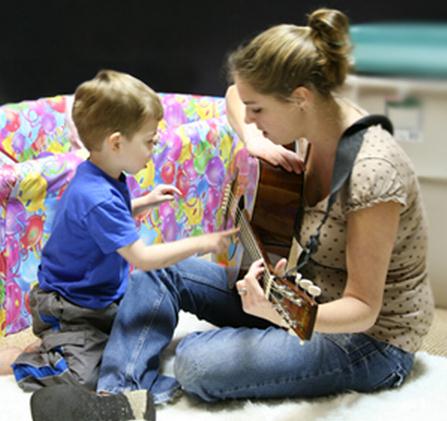Autism is a neurodevelopmental disorder that can affect social and communication skills in children. The onset of autism is at birth or in infancy and symptoms usually appear before the age of three. Children with autism are mostly unable to form normal social interactions, show delays in communication and language, and have repetitive behaviors such as rocking, hand flapping and spinning. Often, they isolate themselves from others and act in an unusual manner. As the child grows older, the patterns of autism also change. Experts suggest that autism may have biological causes including genetics, heredity, infections, and complications during pregnancy, or at birth.
Association with Other Disorders
The following disorders can occur with Autism.
Mental Retardation
About 75 to 80 percent of people with autism are mentally retarded.
Seizures
Seizures are a result of abnormal, electrical brain activity. Almost one third of people with autism experience seizures; onset is usually between early childhood and adolescence.
Fragile X Syndrome
Fragile X Syndrome is a genetic disorder caused by a defective area of the X chromosome. It occurs in about 10 percent of people with autism – most of them are male.
Diagnosis of Autism
There is no specific diagnostic procedure for autism. In arriving at this diagnosis, specialists, such as pediatric psychiatrists, neurologists or child psychologists, may use the following methods of evaluation.
Medical History
In a medical history, the doctor obtains a detailed history of all family members’ health conditions, including the history of the mother’s health during pregnancy.
Observation
Over a period, doctors observe the development of the child’s social ability, behavior, and motor and language skills.
Assessment Examination
The doctor may administer an examination to evaluate the child’s development in areas such as speech, language and social behavior.
DSM
The American Psychiatric Association publishes the Diagnostic and Statistical Manual of Mental Disorders (DSM); it gives standard criteria for classifying mental disorders, including autism.
What are the recommended therapies for Autism?
Over decades, different approaches have been developed to deliver more effective treatment programs.
Occupational Therapy
Occupational Therapy assists people with autism to become independent in all aspects of life, by learning to accomplish common and necessary tasks. Therapists modify tasks to make them more manageable for the individual. Activities include handwriting, tying shoelaces, and buttoning clothes. Another function of Occupational Therapy is to provide people with autism with the skills necessary for work, social life and leisure.
Physical Therapy
Nearly 80 percent of people with autism exhibit decreased muscle tone and impaired motor planning. Physical Therapy provides activities that promote muscle strength, coordination and motor skills (including basic skills such as: standing, rolling and sitting).
Speech Therapy
Speech Therapy aims to treat problems with speech and communication, using a variety methods and interventions such as: formal assessment, play-like therapy and speech training. Non-verbal communication also forms part of this therapy and can include gestural communication, and the use of picture exchange cards or electronic talking equipment. This therapy must be performed by a licensed speech and language pathologist.
Social Skills Therapy
Social Skills Therapy achieves effective communication with others and increases social competence by improving verbal and non-verbal behavior.
Cognitive Behavior Therapy
Cognitive Behavior Therapy focuses on the relationship between thoughts, emotions and behavior. It is a very useful method for managing the symptoms of this disorder. Through Cognitive Behavior Therapy, people with autism learn techniques for coping with, and managing, their emotions in stressful situations.
This post is contributed by Ellen Park, a travel occupational therapist. She previously worked as an occupational therapist at a rehabilitation center and found the benefits of becoming a travel therapist after looking into Travel Therapy Jobs at Advanced Medical.







